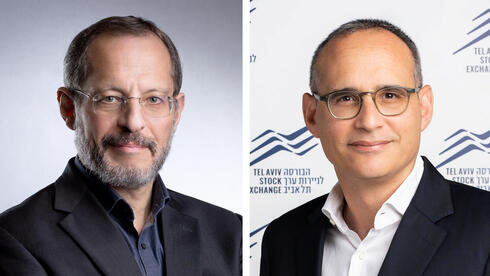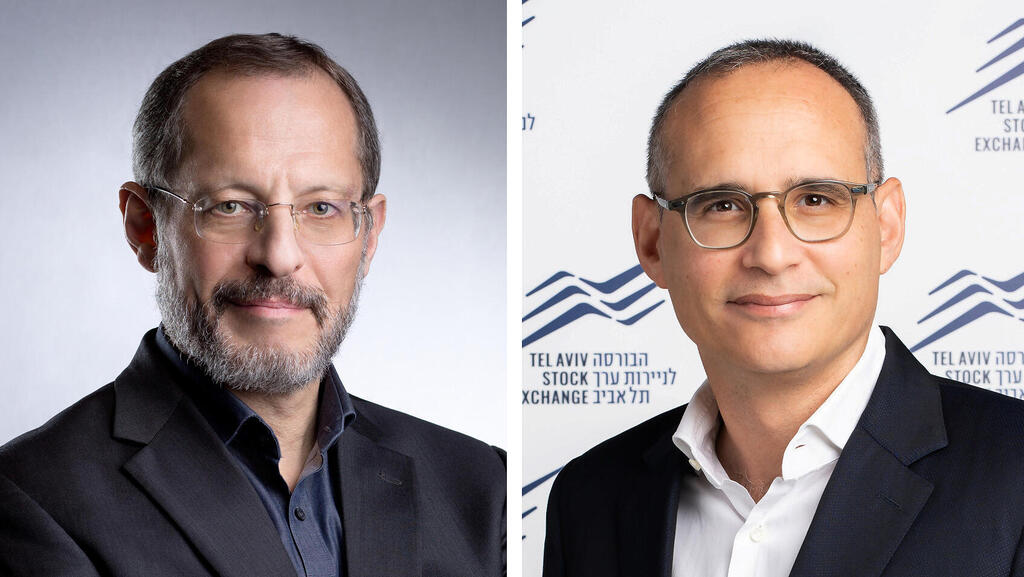
"Strange and unusual": Tel Aviv Stock Exchange's $55M stock purchase raises eyebrows
The exchange's direct purchase of shares from its largest shareholder, financed by a loan, sparks questions about transparency and executive motives.
Why did the Tel Aviv Stock Exchange buy back its own shares for approximately NIS 200 million (approximately $55M) from its largest shareholder, while taking out a loan and without making a tender offer or launching a buyback program? Upon closer examination, it seems that this move primarily benefits the stock exchange's CEO, Ittai Ben-Zeev, other senior executives, and those who have helped him accumulate significant wealth as an employed CEO—Manikay Partners.
Last weekend, the Israel Stock Exchange purchased nearly 5% of its own shares from the Australian Manikay fund for NIS 202 million. The purchase price of NIS 43.8 per share (determined based on the share price over the previous 30 days) was 2% higher than the closing price of the stock the day before. Manikay reduced its holding from 19.9% to 15.2%, but remained the largest shareholder. To carry out the transaction, the exchange announced it would take out a loan of NIS 130 million, despite having nearly half a billion shekels in liquid funds as of the end of September. According to the exchange, about half of this amount was "allocated" for investment in its computer system and therefore could not be used.
1 View gallery


TASE CEO Ittai Ben-Zeev (right), TASE Chairman Prof. Eugene Kandel
(Photos: Nikki Westhafel, Miri Davidovich)
This transaction places Ben-Zeev, Chairman of the Stock Exchange Eugene Kandel, and other directors who hold options or shares in a situation of inherent conflict of interest. The stock exchange itself reported that it initiated the request to Manikay as it anticipated that the fund would soon sell a portion of its holdings and wanted to prevent a situation in which the sale of too many shares on the market would drive the share price down, harming the current value of the holdings of the exchange's senior executives, led by Ben-Zeev. It also served to keep some executives' options in the money. As a result, the stock exchange preferred to directly purchase shares from its largest shareholder, which would make a profit of NIS 175.5 million on the sale, rather than submit a purchase offer or launch a share buyback program that would allow all shareholders the opportunity to sell shares and realize profits.
The deal with Manikay is not a related-party transaction because the stock exchange is not defined as a company with a controlling interest. Thus, there was no need to obtain tripartite approval to carry out the deal. However, the stock exchange's incentive to conduct the transaction is clear.
Manikay, as the largest shareholder, plays a significant role in approving the terms of salary and compensation at the stock exchange. Ben-Zeev, for example, has already accumulated a 3.57% stake in the exchange’s shares, worth NIS 147 million, thanks in part to the exercise of options. In addition, in 2023, Ben-Zeev received another 544,000 options that will mature within five years, with an exercise price of NIS 40 per share. In other words, these options are already "in the money" today. Chairman Kandel holds 320,000 options with an exercise price of NIS 24. These are just some of the options held by senior executives at the stock exchange.
The purchase from Manikay was approved by the stock exchange's board of directors, which, in addition to Kandel, includes prominent figures such as Aharon Aharon, former CEO of the Innovation Authority, and Yonatan Kolodny, former CEO of Keter Plastic.
A senior market source told Calcalist that "the deal seems strange and unusual. The report, in which they present it as if the stock exchange initiated the request, also feels odd. This is not something that usually happens. It seems as though they received an indication that the fund was interested in exercising, and in order to prevent the effect of the exercise—which would have led to a decline in the share price—the stock exchange approached the fund and offered this move. The timing also seems strange. It’s not like we are post-October 7, and foreign investors are looking to flee, or that the stock is in distress. On the contrary, the stock has risen nicely in recent months (115% in the last 12 months, compared to a 66% increase in the Insurance and Financial Services Index, in which it is included)."
According to the same source, "If the stock exchange wants to buy back its own shares, it could have embarked on a buyback program or made a partial purchase offer, giving all shareholders an equal opportunity to sell. Instead, it favored only one shareholder, which looks like an attempt to bail it out. Furthermore, if the stock exchange has liquidity reserves, it could have distributed a dividend to shareholders instead of opting for such an aggressive acquisition move. What seems even more strange is that it’s the stock exchange itself making a questionable move, not some dubious company, while it is supposed to be aware of and sensitive to these issues."
A share buyback program is an initiative where a company purchases its own shares from private investors. These shares become dormant and are not counted in calculating the company's value or its dividend distributions. As a result, the number of shares available for trading decreases, potentially increasing their value. This process is considered positive for shareholders, similar to a dividend. In March 2022, the stock exchange initiated such a program and purchased shares for a total of NIS 100 million until October 2023.
Another senior market source commented, "I don’t have a clear answer as to why they made this purchase in such an unbalanced way among shareholders. We know from experience that the stock exchange management is aware of foreign shareholders’ interests and tends not to distribute dividends, preferring to increase stock value through buybacks. It’s possible that the stock exchange saw an opportunity for a quick buyback move on a large scale, which in a buyback program would have taken longer. The management might have been concerned that if Manikay came to market with the package, it could have created pressure on the stock for a period. Since the CEO of the stock exchange is a shareholder, he would have been affected by this. But the possibility that this consideration influenced the decision seems a bit extreme." However, it should be noted that Manikay, as the largest shareholder of the Tel Aviv Stock Exchange, plays a key role in approving the salaries of senior executives, including the CEO.
Manikay's investment in the stock exchange has proven to be very successful. It purchased 19.9% of the shares in 2019, when the stock exchange was privatized, for NIS 110 million at a company value of NIS 550 million. Entering Monday, the stock exchange’s market value stood at NIS 4 billion. The share price dropped by over 6% on Monday on the back of the stock acquisition announcement. The recent sale of shares to the stock exchange yielded Manikay a profit of NIS 175.5 million, and it now holds shares worth NIS 627 million. Additionally, it has received dividends totaling NIS 64 million over the years. In total, the fund's profit on paper stands at NIS 757 million.













